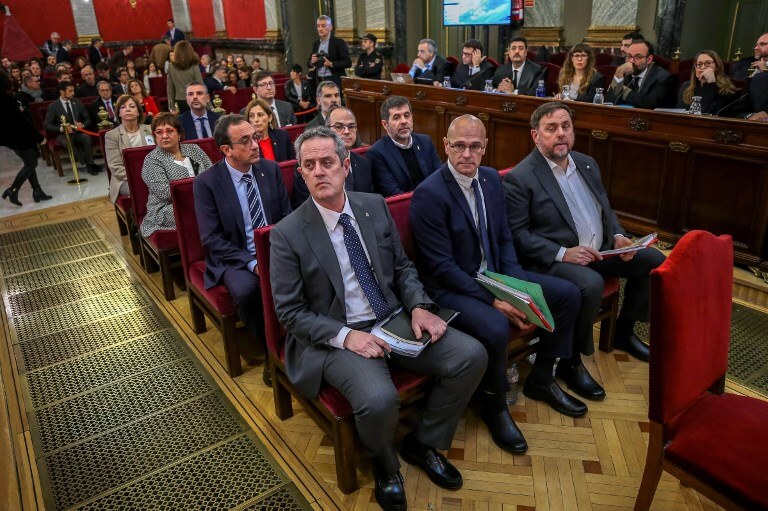The ‘presumption of innocence‘ is a human right, enshrined in Article 11 of the United Nations’ Universal Declaration of Human Rights. In criminal matters, everyone has the right to be considered innocent unless proven guilty, and the burden of proof is on the accusation, not the defense.
The principle of ‘innocent unless proven guilty’ is also a bedrock of European human rights law. The European Convention of Human Rights’ Article 6 is crystal clear on the matter: ‘Everyone charged with a criminal offence shall be presumed innocent until proved guilty according to law.’
Council of Europe Guidelines on Article 6 go further, detailing the kinds of actions which can violate the presumption of innocence. Specifically, the Council of Europe states that ‘Article 6 § 2 prohibits statements by public officials about pending criminal investigations which encourage the public to believe the suspect guilty and prejudge the assessment of the facts by the competent judicial authority.’
In other words, the duty to protect the presumption of innocence applies to all public officials. As stated by the CoE, ‘the presumption of innocence may be infringed not only by a judge or court but also by other public authorities’.
Spain’s Supreme Court recently started the trial of 12 Catalan political and social leaders. 9 have already spent months in pre-trial detainment. They are being tried on charges of rebellion and sedition for their role in organising an independence referendum, which was declared unconstitutional by Spain’s judiciary, in Catalonia in October of 2017. The trial, which is highly political and controversial, is expected to take months.
Despite the fact that no verdicts have yet been issued, public authorities in Spain – including high-profile members of the Pedro Sánchez government – have made multiple public statements which violate the presumption of innocence. On 6 November, in the Spanish Congress, Vice President Carmen Calvo stated during session that the Catalan leaders ‘are in preventive prison for having committed crimes’.

In December, during an interview on BBC Radio, Irene Lozano, the Secretary of State for Global Spain, referred to the Catalan leaders in pre-trial detention as ‘leaders that have committed criminal offences’. Later in the same interview, she referred to the defendants as ‘the convicted’.
In February, on Sky News, after having compared the Catalan independence referendum to rape (the logic being that both sex and voting are legal only when permission is granted), Lozano went on to state that the Catalan leaders were ‘especially responsible to comply with the law, and they didn’t do it’.
The same month, Spain’s ambassador to the United States, Santiago Cabanas, wrote in The Hill (an American political newspaper) that ‘the politicians currently in jail awaiting trial are there, not because of their opinions – that is not a cause for incarceration in Spain – but rather because they broke the law’.
All 4 of these examples clearly fit the Council of Europe’s definition for infringement on the presumption of innocence: ‘statements by public officials about pending criminal investigations which encourage the public to believe the suspect guilty’. The fact that neither the Spanish government nor the individuals mentioned have clarified, corrected, or apologised for any of these statements make the violations all the more grave, suggesting potential intentionality, rather than mere slips of the tongue.
Public officials, paid by the State, have a responsibility to ensure the rights of prisoners in the State’s custody. State employees suggesting the guilt of the Catalan political leaders is irregular and inappropriate for the government of an EU member country. Accusing political adversaries of grave crimes (when they are unable to respond, given the fact they are in pre-trial detainment) violates the spirit of democratic discourse. But doing so during judicial proceedings makes these statements more than just bad politics: they are human rights violations.
Whether these ongoing references to pre-trial Catalan detainees’ guilt is meant to ‘prejudge the assessment of the facts by the competent judicial authority’ or simply garner electoral support matters little in terms of the violation of European Convention on Human Rights’ Article 6.
If the Spanish Supreme Court does not take into account these clear infringements on the presumption of innocence in the case of Catalan political leaders, its impartiality should be questioned. And if judges in Madrid choose to ignore the matter, judges in Strasbourg (European Court of Human Rights) almost certainly will not. Tragically, by the time it takes for the case to make its way to Strasbourg, the Catalan politicians will have perhaps already spent years in prison, convicted under conditions in which their human rights were not protected – but rather violated – by their State.
Joe Brew is a data scientist and researcher from Florida (USA). He works for Databrew (www.databrew.cc)



3 comments
[…] Read here […]
Great article! There is so much wrong about this completely politicised ‘trial’ and due to clouds around Brexit the EU are choosing to conveniently ignore.
I’m living in Ireland at the moment a country that would traditionally show more empathy to a small country seeking self determination… Alas less than 50 days out media here is totally and rightly preoccupied about our border and peace process.
Brexit is proving the perfect screen from behind which Spain can flex its facist tendencies
We are in a worrying period in European history!
There is a reason why no nation that respect itself (not counting Venezuela and others) has not made any important gestures towards Catalonia pro independence movement.
There is no self determination per se recognized either in any nation’s constitution or even by the U.N.
More importantly, the simple majority of Catalonia individuals as of today are NOT pro independence and do not support any radical and total separation from Spain. Luckily, Torra and his colleagues have governed with their back to those who do not support independence and therefore have not been able to convince the simple majority.
The Spanish administration is a coalition government of communists and socialists (PSOE and Unidas-Podemos) so there is little credibility to call the Spanish government having fascist tendencies.
The truth is that these individuals has been found guilty as charged in various counts of corruption and illegal political activities and therefore should served their sentences according to law. They are already in Catalonia prisons (yes, in Catalonia) and enjoying all the benefits of the judicial/prison system.
I am looking forward to seeing what the European Court may have to say on their appeal.